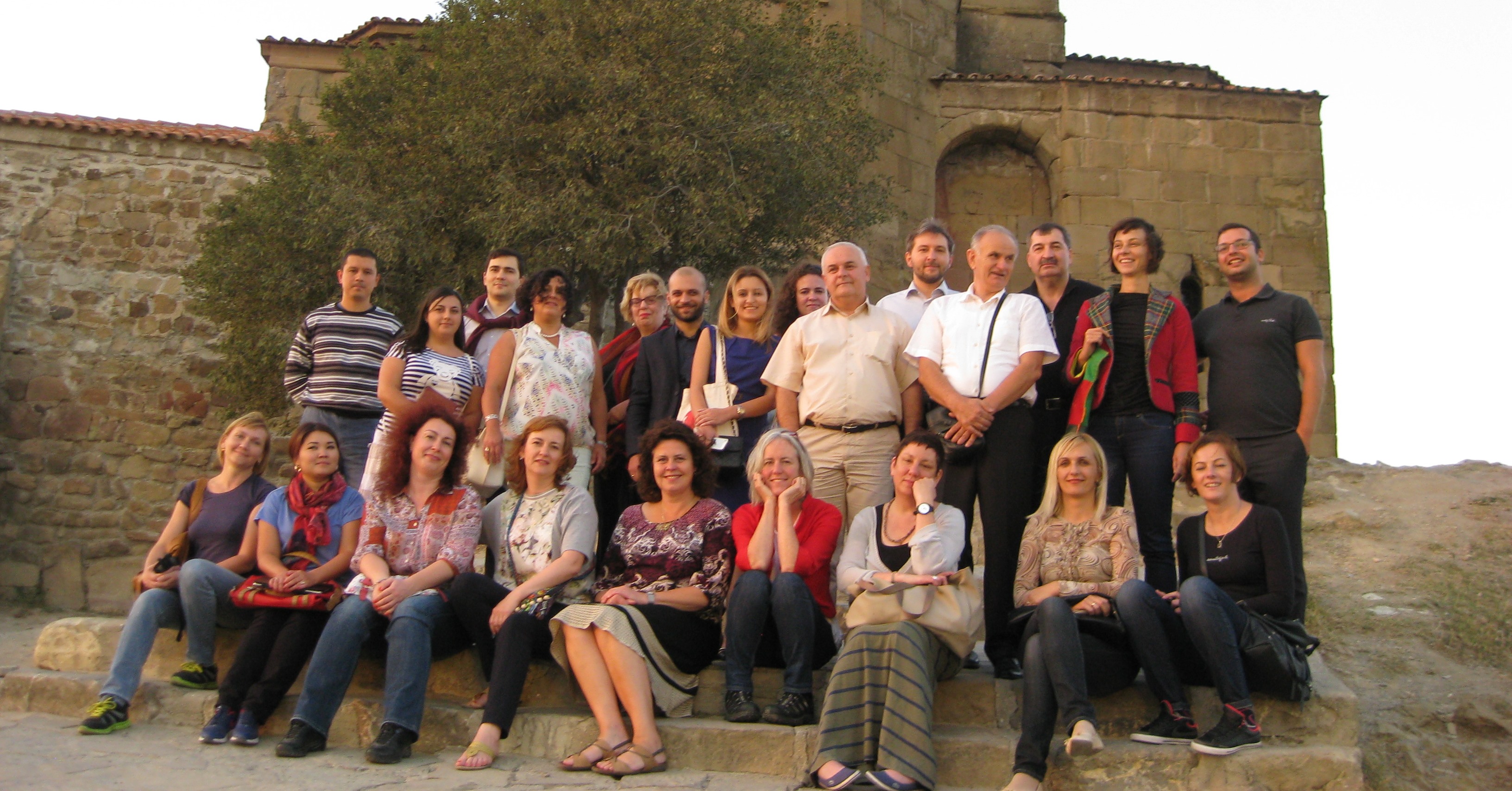The 2,5-day seminar was attended by representatives of Armenia, Azerbaijan, Belarus, Bosnia and Herzegovina, FYROM, Georgia, Germany, Kosovo, Kyrgyzstan, Moldova, Poland, Serbia, Sweden and Ukraine, as well as the three PP7 experts, UNHCR and ICMPD.
The focus of the seminar was on training in asylum and international protection law and more specifically on Refugee status and Inclusion, as well as the five Convention grounds of the 1951 Refugee Convention with a special focus on membership of particular social groups. Presentations were complemented by interactive sessions and discussion of fictive asylum cases within working groups. Participants were introduced to the evolution of asylum law through jurisprudence and case law of national and other courts.
Representatives of the Swedish Migration Agency (SMA) and the German Federal Office for Migration and Refugees (BAMF) as the leading states authorities of the Pilot Project 7 opened the event, together with the hosting state Georgia. An introduction to the project was made with emphasis of the aims of this particular training event. It was underlined that this seminar is part of a process that will result in practical Guidelines on how to do continuous training for existing staff by using content of best practice decisions and jurisprudence, including also suggestions for how to use existing training manuals available in English and Russian and in the public domain.
Then followed a short presentation on current developments in asylum procedures in Georgia, after which the UNHCR Regional Protection Support Unit - newly opened in Tbilisi - was introduced. Participants also received a short overview of the answers provided by participating states to the PP7 questionnaire, which served as the basis for the selection of topics to be discussed. The opening session was concluded by a tour de table, giving all participants the opportunity to introduce themselves and their expectations for the seminar and the project.
The first session was dedicated to Core issues in Refugee and International Protection Law and consisted of presentations by the PP7 experts, Judge Judith Gleeson (United Kingdom) and Judge Judith Putzer (Austria). This was followed up by Dr Jane Herlihy (United Kingdom), presenting research on functioning of memory and its relevance regarding credibility assessments in asylum cases. The first day was completed by case study sessions during which concrete asylum claims were discussed in groups.
The second day of the seminar was opened by expert interventions on the concept of persecution, the five convention grounds and the evolvement in jurisprudence on applying the 1951 Refugee Convention. The role of memory when a decision maker is assessing possible issues of credibility in a case where the applicant may have traumatic experiences was presented thereafter, followed by an interactive session of sharing some of the continuous work on quality assurance mechanisms et al. within the first phase of the project Quality Initiative in Eastern Europe and South Caucasus (QIEE) implemented by UNHCR.
In the afternoon, the attendants were introduced to a training manual (also existing in Russian), the so called CREDO Manual (Credibility Assessment in Asylum Procedures – a Multidisciplinary Approach) and in a second session to database searches on case law, including also to newsletters and law blogs.
The final day of the workshop was mainly devoted to the evolvement in case law and practice of the convention ground of membership of a particular social group and the discussion of related asylum cases in working groups.
During the final feedback session, the participating states expressed their appreciation of the approach taken and especially that an atmosphere was created that enabled active participation which had made the training particularly interesting and useful. Several suggestions were made as to topics and format of the next agenda for the upcoming two PP7 seminars which Sweden and Germany together with the experts and project team were happy to take note of. The leading states thanked the participating states for sharing expertise and experience and also emphasized that the following two seminars will include parallel working groups for training-of-trainers especially targeting current or future national trainers that participating states are encouraged to nominate. The 2nd PP7 seminar is foreseen to take place in Brussels on 25-27 November 2015.

